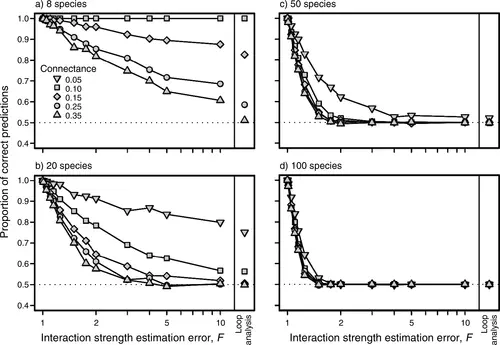Predicting community responses to perturbations in the face of imperfect knowledge and network complexity

Abstract
How best to predict the effects of perturbations to ecological communities has been a long‐standing goal for both applied and basic ecology. This quest has recently been revived by new empirical data, new analysis methods, and increased computing speed, with the promise that ecologically important insights may be obtainable from a limited knowledge of community interactions. We use empirically based and simulated networks of varying size and connectance to assess two limitations to predicting perturbation responses in multispecies communities: (1) the inaccuracy by which species interaction strengths are empirically quantified and (2) the indeterminacy of species responses due to indirect effects associated with network size and structure. We find that even modest levels of species richness and connectance (∼25 pairwise interactions) impose high requirements for interaction strength estimates because system indeterminacy rapidly overwhelms predictive insights. Nevertheless, even poorly estimated interaction strengths provide greater average predictive certainty than an approach that uses only the sign of each interaction. Our simulations provide guidance in dealing with the trade‐offs involved in maximizing the utility of network approaches for predicting dynamics in multispecies communities.